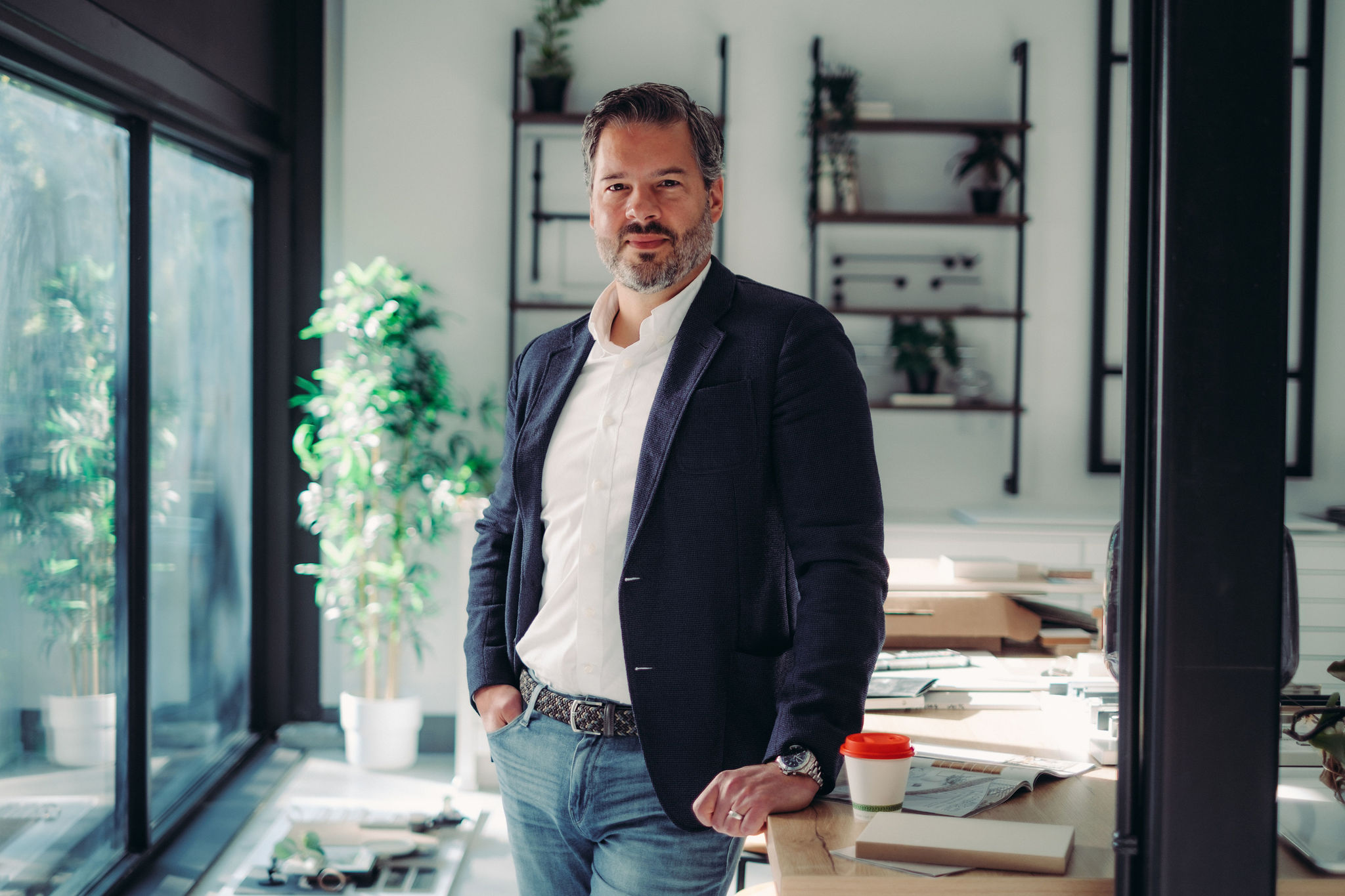This is one of 12 interviews conducted with various Edmontonians about their experience with the housing system. It has been edited for clarity and length. Read more about why and how Taproot embarked on this series.
Paul Lanni is the president and CEO of Averton, a developer and builder of townhomes, single-family detached homes, and multi-family buildings operating in both Alberta and Ontario. Lanni spent time growing up in Edmonton through the early '80s, and then returned to head up the Edmonton part of the family business in 2005.
Can you tell us how you got into the housing ecosystem?
I'm the third generation of a family that's been involved in real estate, through land development and homebuilding. I'm also part of the first generation of my family that was born in Canada. My grandparents and parents came to Canada in the '50s and landed in Toronto. After starting out building railroads, my grandfathers eventually ended up in the housing business, and were soon followed by my father. My parents always encouraged me and my brothers to pursue greater things, but it was a natural fit, as we were always around. There's something about that smell of sawdust in the morning that's so familiar.
You came back to Edmonton from Toronto in 2005. What was that like?
Our timing was very good because within 12 months of arriving, the market really started to take off in 2006-07, tied to a booming resource sector. A lot of people came in and just as quickly they left. For me, at that early part of my career, to be able to experience that kind of adjustment so quickly, there was pain attached to it, but it was extremely informative.
What made you stick with Edmonton?
For my wife and I, what really drove our decision to stay in Edmonton was that we started having kids, and we saw this as an opportunity for our family. While both of us were from Toronto and have lots of family there, we really had a great thing going with respect to the quality of life that we were enjoying in Edmonton.
What kind of housing did you build?
When we came out, we really wanted to focus on differentiation. We were small. We weren't coming out in a big way. We spent a lot of time studying the various builders in the market that were successful, trying to distill what those elements were that made them the most successful, and ultimately landed on our own flavour. We always leaned towards higher quality, with premium materials, larger windows, and stronger architectural features on the outside of the homes. We felt those were things that the market wasn't really paying attention to. Anyone would have told you back then that the outside of the house is less important to Edmontonians; their home on the inside is what's more important. I never believed that to be true.
We conceive our communities from raw land all the way to the final design of the homes, with a focus on the experiences of those who live in them. The park spaces, the street design, that's all part of the storyline for us. We built many high-end homes, including grand prize homes for the Full House Lottery. Our bold move, if you will, was to move into higher-density housing product but still bring the desirability of the single-detached home, laden with premium materials, floor-to-ceiling windows, rooftop terraces … people stopped in their tracks, because they hadn't seen that in Edmonton.
It sounds a bit like Averton caters to a higher-end housing market. How do you answer criticisms that developers need to start providing more affordable housing?
I want to correct that perception a little bit. We have built everything, from high-end homes all the way to entry-level homes. Our differentiator is that we feel we can put more features and more thought into whatever price level the home is at. In our Midtown project in St. Albert, for example, we have four different product types, with pricing from the low $300,000s to over a million, and we find that diversity is so important into creating a successful community. I think it does tie into conversations about affordability. Ultimately, if the market can't absorb our houses collectively as an industry, then we're not going to be successful, right?
We have a problem, as any city does, in people being able to have a good quality of life, including home ownership. I think the movement towards affordability is often rooted in affordable rental, and while I believe that's an important part of this chain, I don't think it's the only part. I think that finding paths to affordable home ownership is also very important for the long-term prospects of our city. We want people to be able to get off the rental train and build equity, and I think that's what many people want in the long run.
Averton is working with Habitat for Humanity on some of our homes in St. Albert. Their model is really about making home ownership within reach. They pursue grant money wherever they can, and they partner with qualified families on the purchase of housing. It's a unique model, but it builds great value for families.
I know that some people will point out how difficult it is for the average family to make ends meet without coming close to being able to afford a house.
I'm of the belief that, when it comes to costs, unfortunately, we're not going to see a return to the way things were five years ago, or 10 years ago. Like everything else, this becomes the new normal. You might see adjustments for interest rates and things like that, but ultimately, the cost to do anything is going up.
It's typical for developers to have fingers pointed at them for wanting to be successful, "pursuing profits," or whatever label gets used. At the end of the day, anyone running a business has to get a return on their business, otherwise they're not going to go into that business, right? This applies to anyone in any business. Those of us that have been in real estate development and homebuilding long enough have learned that this is a very difficult business. You have a ton of risk. There's a lot that can go wrong, and you have to mitigate all of those risks at every step of the way.
In regards to houselessness, I think there are other elements, social elements, that have to be dealt with. Housing is part of that, but it's not the only piece, and probably isn't the first piece. The city and other agencies involved need more tools and more support to be able to deal with the issue. Some people's situations might be much more difficult than we can even imagine. So, we have to expect that potential difficulty is always going to be out there as our city grows and people's situations change.
If you think about seniors, some are not going to be in a position that they have extensive options for housing. We have to figure that out, because we have an aging population. We certainly need affordable options for seniors that need it, but also those young families and others who need a hand up, more so than a handout. Today, there is a tremendous need for all forms of housing, and more and more newcomers will continue to look to build their lives in Edmonton. Perhaps we can look at different ways of meeting the various needs of all people in Edmonton. We can't turn a blind eye to where the problems are or where we are lacking. We have to recognize where we're deficient and try to fix it.
This interview was conducted on July 16, 2024.


